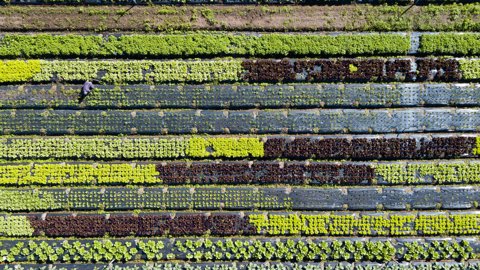According to a recent announcement, APG and Achmea will be investing over one billion Euros in sustainability projects in various places, including Africa. This is a good opportunity to delve a little deeper into the opportunities and challenges these investments entail. Sjacco Schouten (Head of Emerging Market Debt at APG) is going to fill us in.
Summary
• The investment of $1,050 million currently focuses on four sectors within the framework of sustainability.
• ILX is going to act as the external manager on behalf of APG, Achmea, and their pension fund clients.
• When it comes to African investments, the data quality and quantity aren’t as good as they are in the West. However, MDBs and DFIs do visit the locations in question to investigate them.
• The continent’s political instability is still an obstacle when it comes to financing sustainable development projects.
The agreement concerns a partnership between ILX Management, acting on behalf of both pension investors, and the African Development Bank (AfDB). This agreement contributes to the concentration of the total committed amount of $1,050 million through investments in four key sectors for economic sustainability: access to energy and clean energy, sustainable industry and infrastructure, inclusive financing, and food security.
Whenever Africa is featured in the media, the focus tends to be on refugees, emigration to Europe and armed conflicts. Which developments do you believe deserve more focus?
“It’s about turning the tide, so that future news items about Africa will differ. These types of initiatives can help the continent develop further. Naturally, there are structural problems like the historic influences of the West and mutual rivalry between tribes. However, I believe that investments like this stimulate sustainable development by helping tackle issues like food scarcity and inadequate access to energy supplies. These are problems which currently result in many Africans attempting the dangerous crossing to Europe. Making better access to (clean) energy available stimulates the founding of companies, for example, which may result in a flywheel effect. This may all sound somewhat oversimplified, and it’s definitely a long-term solution, but each investment contributes to this effect. This is what institutes like the World Bank and the AfDB are investing in.”
What precise role will ILX play in these investments?
“You should think of ILX as an external manager that makes investments on behalf of us and our fund clients ABP and bpfBOUW. At APG we have what is known as the Emerging Markets Debt portfolio. It’s mainly geared towards financing governments, including African ones. These loans are mostly used to finance fiscal deficits. You could say that we’re contributing to a country’s development. These loans generally end up in a country’s coffers, and it isn’t always clear whether or not the loan is being used for things like sustainable projects.”
Why doesn’t APG manage these loans themselves?
The loans being managed by ILX, will be disbursed by Multilateral Development Banks (MDBs) and other leading Development Finance Institutions (DFIs). We currently don’t have the capacity to select and manage this type of loan internally. This is why ILX is taking that first step for us. They’ll create a pool of loans which will be spent by institutions like the World Bank and the AfDB. They’ll perform a due diligence investigation for the projects being financed using the loans, and ILX will conduct their own investigation before making capital available. For this what’s known as a B loan structure will be used (where the A part of the loan will be registered to the DFI or MDB in question and the B part will be registered on the books of the commercial investor, ed.). This structure will result in the allocation of the same ‘preferred creditor status’ as the one which the DFI or MDB would receive.”
What makes this type of investment so attractive?
“We examine four criteria when we make an investment. This is also known as the quadrant: return, risk, responsible investment, and costs. These investments clearly meet the demand for the responsible investment criteria. We also think that the investment has an attractive risk return profile. Due to the long-term relationship ILX and AfDB have with their clients and projects, there’s a good chance that they will always get their money back if a project is a failure, which means that we will too. It also features responsible investment elements, and the expected return meets the benchmark, while the risk is comparatively low when compared to regular corporate bonds. It’s the combination that makes this investment so attractive. Another key factor is that these investments have a dampening effect if the bottom falls out of the financial market. On the other hand, these investments won’t grow as quickly if the market really takes off. However, it does improve the risk-return profile of our total portfolio.”
The challenges are mostly political in nature
Data plays an increasingly large role in investments; not only to help determine their value but also, for example, during a due diligence investigation. Is there sufficient reliable data concerning potential investments in Africa?
“The quantity and the quality of the data is increasing. However, not all African countries have reached the desired level. We invest in countries who express their debt in local currencies. Macro-economic figures are relevant to these types of investments, and these figures are nearly always readily available. The same applies to countries that express their debts in hard currencies like the Dollar or the Euro, although improvements can be made in that area. One of the benefits of investing via MDBs and DFIs is that they have a network in the countries in question and they have fostered long-term relationships with these partners. They don’t do their due diligence investigation from behind a desk in, say, Washington D.C.; instead, they actually travel to the country in question. While they’re there, they examine a variety of projects before making a decision about an investment. This type of bottom-up investigation more than makes up for the fact that the data quality and quantity in Africa aren’t up to the same standards as those applicable in the West. In fact: the information gained during these types of projects helps us to create better analyses as we gain more insight into what’s happening on a microlevel. This isn’t something you can achieve solely on the basis of a macro-economic perspective.”
ILX’s main areas of focus include four important economic sectors: access to energy and clean energy, sustainable industry and infrastructure, inclusive financing, and food security. To what extent does APG determine which projects are eligible for investment and which ones are not?
“We’ve provided ILX with a clear mandate and a set of guidelines. This ensures that they’ll deliver the product we expect. At the same time, we’re also constantly in dialogue with them. For example, we tell them about sectors which we believe are more or less interesting than others. Both our fund clients, ABP and bfpBOUW, can add their own personal touches. However, we aren’t going to replace ILX with APG. This would defeat the purpose of hiring an external manager; instead, we’re there to act as a sounding board.”
If we zoom out and take a look at general investment trends in Africa, then it becomes clear that the founding of the African Continental Free Trade Area is an interesting development. The trade area, consisting of 53 participating countries, is the largest free trade area in the world. How is this important for an institutional investor like APG?
“The bigger the collaboration and the bundling of interests, the stronger the block. As you mentioned before, there’s a lot of unrest in Africa, as well as different parties vying for power. If this can be countered with an economic collaboration, then, in time, this might help stabilize the continent. Africa may be able to play a larger role in global politics, especially in the field of sustainable development. However, this doesn’t necessarily create opportunities for us as large investors. We have to try and see it as a long-term development, which will mostly benefit people living on the African continent.”
Over 60% of Africans are under the age 25. How will this affect the continent's opportunities and challenges?
“There’s a huge amount of potential over there; this is partly the result of having such a young population. At the same time, so many of the people there lack basic necessities for human life, like food, energy and infrastructure. The option to increasingly have these needs met could result in a huge flywheel effect. This is especially true if people stay there and start earning money in Africa, helping to develop their continent. The challenges are mostly political in nature. The individuals in power in developing markets with populist leaders tend to primarily focus on the wants and needs of their supporters. The question is, to what extent can and will they facilitate a democratic system, so that sustainable development – and its financing by large investors – will really stand a chance? There’s a huge demand for funds for sustainability projects. However, a functioning democracy is a must for helping to initiate the cash flow.”



